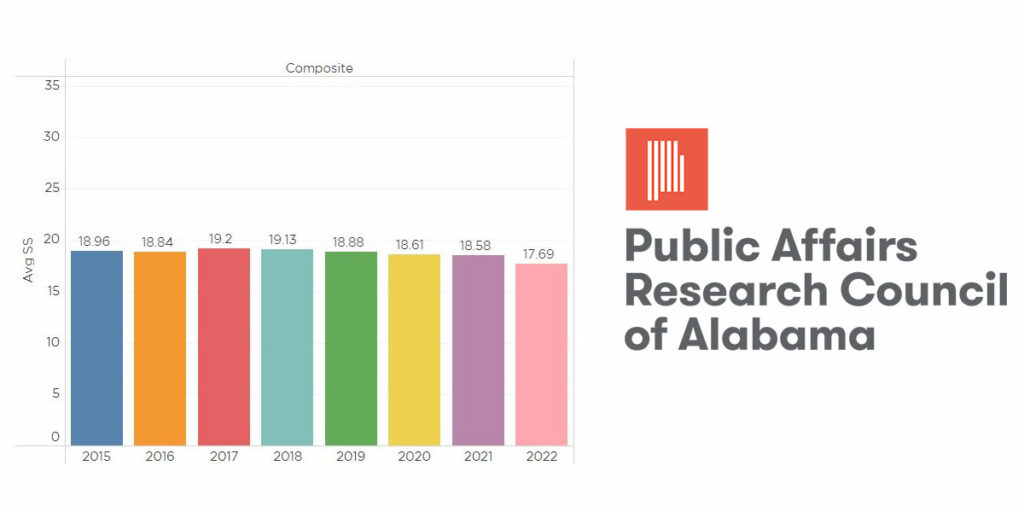BIRMINGHAM — In Alabama and across the country, average scores on the ACT, the widely-used college readiness test, dropped for the pandemic-plagued Class of 2022, with Alabama scores reaching their lowest point since 2015.
Compared to the Class of 2021, Alabama public high graduates’ average composite score dropped by almost a point from 18.6 to 17.7 on a 36-point scale.
That’s down from a high of 19.2 reached by the Class of 2017. The 2022 drop was sharper than but parallel to a half-point decline in the national average ACT score. ACT reports that the 2022 composite is the lowest national score in over three decades. The percentage of students rated college ready also dropped in every tested subject.
In Alabama, only 12.5% of seniors in the Class of 2022 scored at or above the college-ready benchmark in all four subjects. The subject with the highest college-ready rate was English, in which 40% of students met or exceeded the benchmark. In math, only 16.9% met the college-ready standard.
The most immediate explanation for the drop in scores is the Covid-19 pandemic.
While the Class of 2022 experienced a relatively normal senior year in 2021-2022, their sophomore and junior years, key ACT preparation and testing years, were disrupted.
In their sophomore year, in-person schooling ended abruptly in March 2020. Their junior year, which began in the fall of 2020, featured an uneven mix of remote and in-person learning. All Alabama juniors take the test in the spring, with some retesting into the senior year.
At the same time, many colleges dropped the requirement that students take a standardized admission test. So, students who previously would have taken the test several times in hopes of improving their scores were less motivated to do that.
On average, students who take the test multiple times improve their scores. According to ACT, the number of Alabama students taking the test three or more times declined from approximately 21,000 in 2017 to 13,000 for the graduating class of 2022. The results presented in this dataset and previous years are based on the highest scores achieved by graduates.
The drop in scores was prevalent across most Alabama schools and systems. There was no discernable pattern in the performance decline across schools and systems. Neither the socio-economic mix of the student population, per-student funding, or previous ACT score performance correlated with the changes.
Among demographic subgroups, White and Hispanic students saw steeper drops in performance than Blacks and Asians. As with most standardized tests, score gaps exist between racial, ethnic, and economic groups.
On average, Blacks and Hispanics earn lower test scores, and a smaller proportion of test-takers in those groups reach the college-ready benchmark. Asians, on the other hand, outscore Whites.
Despite the fall in scores on the ACT over time, Alabama’s high school graduation rate has increased over the same period, and the percentage of those graduates going on to four-year college has remained steady.
Those two factors have meant the number of Alabama students proceeding on to four-year college has increased, despite the overall student population trending down. Meanwhile, the pandemic and the high demand for workers have led to a drop in the number and percentage of students going straight into two-year colleges.
That’s not uncommon. In periods of low unemployment, more people are drawn directly into the workforce.













